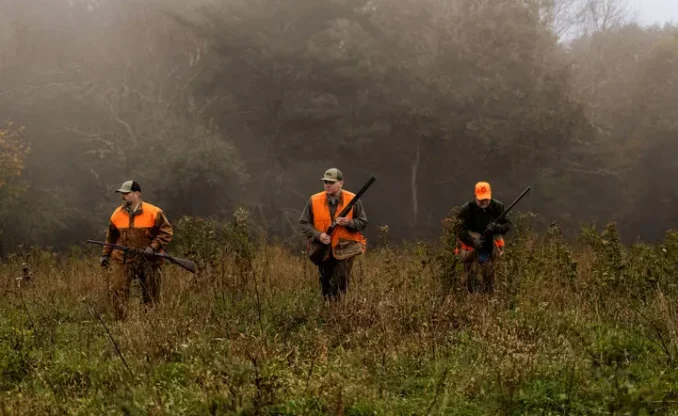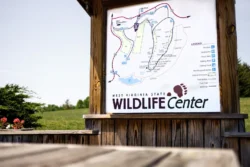News Release: August 13, 2021
SOUTH CHARLESTON, W.VA. — The West Virginia Division of Natural Resources (WVDNR) today updated its investigation of diseased birds found in recent months in the Eastern Panhandle of West Virginia and surrounding states.
A cause of the problem has not been pinpointed at this time, but WVDNR continues to collect information, investigate and work with other agencies and organizations to track the situation. Reports of affected birds have tapered off since late July.
In late May and early June, WVDNR received initial reports of sick or dead birds in the Eastern Panhandle. Approximately 15-20 percent of the reports related to lesions of the birds’ eyes common to the regional event. Mortality events have typically involved one to four birds at a given location. Reports of sick and dead birds have decreased in West Virginia and surrounding states since late July.
While a final diagnosis of birds submitted by WVDNR for examination has not been made at this time, some results have been shared by the agency and cooperative wildlife diagnostic laboratories. No human health or domestic livestock and poultry issues have been reported thus far.
The following pathogens have not been detected in any birds tested, based on results received to date: Salmonella and Chlamydia (bacterial pathogens), avian influenza virus, West Nile virus and other flaviviruses, Newcastle disease virus and other paramyxoviruses, herpesviruses and poxviruses and Trichomonas parasites.
Transmission electron microscopy and additional diagnostic tests, including microbiology, virology, parasitology and toxicology are ongoing. No definitive cause(s) of illness or death have been determined at this time. However, similar to previous avian disease outbreaks where birds presented with swollen and crusted eyes, a species of bacteria called Mycoplasma was found in some sampled birds.
Birds from several West Virginia counties have been submitted by WVDNR to the Southeastern Cooperative Wildlife Disease Study (SCWDS), where diagnostic tests are pending. Most verified reports of sick and dying birds in West Virginia have come from the state’s eastern panhandle counties, especially Berkeley and Jefferson (the outbreak area). No large local mortality events have been reported in conjunction with this event in West Virginia; most reports have involved fewer than five birds found at a given time or location.
WVDNR, the Virginia Department of Wildlife Resources, District of Columbia Department of Energy and Environment, Maryland Department of Natural Resources, National Park Service and other agencies are continuing to work in partnership with diagnostic laboratories to investigate the cause of mortality. Those laboratories include the USGS National Wildlife Health Center, SCWDS, the University of Pennsylvania Wildlife Futures Program and the Indiana Animal Disease Diagnostic Laboratory.
While the cause of this avian mortality event is yet to be determined, birds that congregate at feeders and baths can transmit avian diseases to one another. As such, the WVDNR is continuing to recommend that West Virginia residents do the following:
- Cease feeding birds in Berkeley and Jefferson Counties until this wildlife morbidity/mortality event subsides.
- Clean feeders and bird baths with hot, soapy water and sterilize in 10 percent bleach solution (one part bleach mixed with nine parts water), rinse with water and allow to air dry.
- Avoid handling birds, but wear disposable gloves if handling is necessary.
- Keep pets away from sick or dead wild birds as a standard precaution.
Residents outside the outbreak area may continue to feed birds but should take the opportunity to take down, repair and disinfect their feeders. Remember, “an ounce of prevention is worth a pound of cure.” If you see sick or dead birds near your feeder or bird bath, it is advisable to remove the feeder or bath for a period of two weeks and to sterilize with a 10 percent bleach solution. Residents may continue feeding hummingbirds but should clean feeders with soap and water and ensure hummingbird food is fresh every few days.
If you encounter sick and/or dead birds exhibiting the clinical signs listed above, please contact the WVDNR District Office that serves your area. If you must remove dead birds, place them in a sealable plastic bag to dispose of with household trash. Additional information will be shared by WVDNR as diagnostic results are received.



